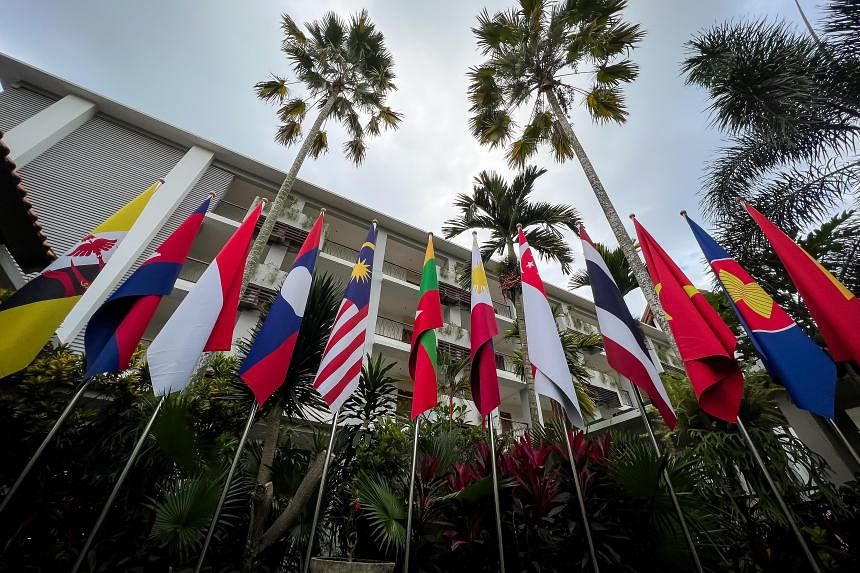WASHINGTON – Political leaders in Washington must understand that if they want to maintain the influence of the United States in South-east Asia, they need to find a way to move ahead on economic and trade aspects, according to a former US ambassador and a prominent strategic analyst.
But Beijing and Washington both have “a tendency to go to the region and warn the region about dealing with the other”, Mr Scot Marciel said in The Straits Times’ Asian Insider podcast.
“Beijing’s doing it, Washington’s doing it. And I just think that’s a mistake,” he said. “It’s an effort in vain and the US focus should be a lot less on talking to South-east Asia about China. The region knows China perfectly well.”
Mr Marciel, now a senior adviser at the consultancy BowerGroupAsia, is a former US ambassador to Myanmar, and to Indonesia.
He was speaking on the podcast alongside Dr Lynn Kuok, a Shangri-La Dialogue senior fellow for Asia-Pacific security at the Singapore office of the International Institute for Strategic Studies.
“There’s no question that the US has lost economic influence... and has so far been unable to come up with really practical mechanisms to increase trade, investment, and engage on infrastructure,” Mr Marciel said.
“Certainly I would like to see the countries of South-east Asia maybe offer up more ideas on things that could be done, more partnership ideas.
“But I think fundamentally the issue does rest in Washington. And political leaders need to understand that if they want to maintain US influence, they need to find a way to move ahead on the economic and trade side.”
It remains challenging for the US administration to figure out how to engage with South-east Asia, Mr Marciel said.
“People don’t understand how much agency South-east Asian nations have in their own independence and their desire to make their own decisions,” he said.
“There’s a need to understand (that agency) better, and have a little bit more confidence that just because Leader X goes to Beijing and signs a couple of deals does not mean that the country has become a Chinese vassal state.”
Dr Kuok told Asian Insider that Washington should understand that a desire in the region for the US to remain present and engaged co-exists with anti-US and anti-Western sentiment in some quarters – and what is sometimes seen as China bashing entrenches such sentiment.
Additionally, while there are regional objections to Beijing’s actions that flout international law and hurt the economic interests of other countries – most notably in the South China Sea – South-east Asian states nonetheless generally desire closer ties with China, she said.
“China is not seen as the enemy, but as a large neighbour with whom they sometimes have disputes,” Dr Kuok noted.
“That’s a very important distinction,” she said. “The US framing of China as a threat, or as an authoritarian challenge, has very little traction in the region and could also be counterproductive.”
She added that countries in the region are “more worried about a US-China clash than they are about Chinese coercion, which they consider themselves, rightly or wrongly, able to manage”.


